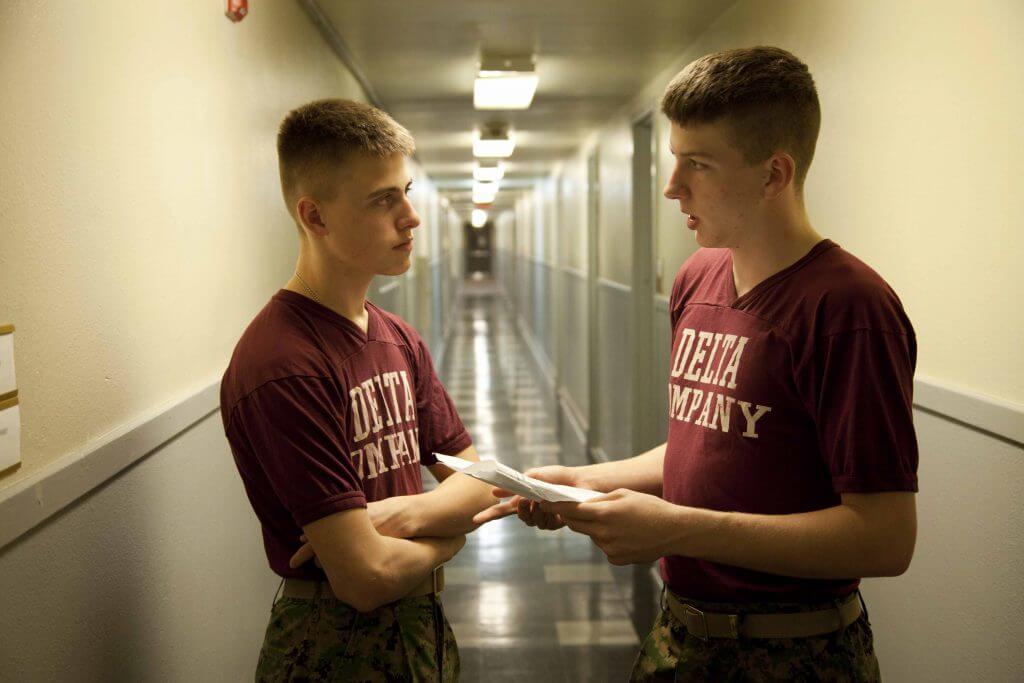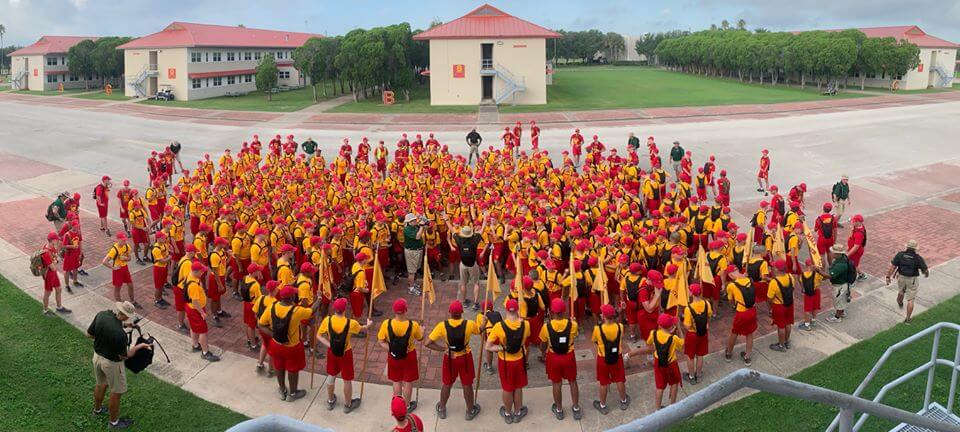Overview:
- Academic success and leadership effectiveness are related to a person’s emotional intelligence.
- Schools across America are integrating social-emotional learning into their curricula.
- Many of the strategies employed by schools are by their nature insufficient to foster the growth of emotional intelligence.
- Military schools are in a unique position to foster social-emotional learning because of their unique environment and emphasis on team development.
Is Emotional Intelligence Important?
I think that you will agree that the ability to harness one’s emotions and recognize the emotional state of others is a valuable skill. A person with a high level of emotional intelligence can perceive, understand, manage, and utilize information about emotions to improve interaction with peers, teachers, and work associates. You can build emotional intelligence skills that will allow you to recognize your own emotions and those of others and use that information to make appropriate decisions.
The American Psychological Association (APA, 2020) defines Emotional Intelligence as,
…a type of intelligence that involves the ability to process emotional information and use it in reasoning and other cognitive activities, …it comprises four abilities: to perceive and appraise emotions accurately; to access and evoke emotions when they facilitate cognition; to comprehend emotional language and make use of emotional information, and to regulate one’s own and others’ emotions to promote growth and well-being.
Researchers have found that academic success is strongly associated with several dimensions of emotional intelligence (Parker, Summerfeldt, Hogan, & Majeski, 2004). It has also been noted that higher levels of emotional intelligence are associated with increased leadership effectiveness which could not be explained by either the individual’s personality or IQ score (Rosete & Ciarrochi, 2005).

Are Public School Interventions Making a Difference?
Given the research, preparing young men and women for the work world should include social-emotional development. From a neurological standpoint, early adolescence to young adulthood is a critical period of physical and emotional growth. A person’s learning experiences during this period will influence the development of academic and career skills (Basu & Mermillod, 2011). With this in mind, many schools across America are using Social-Emotional Learning (SEL) interventions to develop emotional intelligence. The report, Ready to Lead (2019), by the Collaborative for Academic, Social, and Emotional Learning (CASEL) finds that
“…the movement to embed social and emotional learning into every classroom and school in America has reached a tipping point. Principals stand ready to bring systemic, school-wide SEL to their schools… to ensure every student has access to a high-quality education that nourishes their social and emotional skills along with academic learning” (Atwell & Bridgeland, 2019).
In terms of economics, a cost-benefit analysis finds
…substantial evidence of positive impacts of SEL that include large gains in SEL skills, attitudes, positive social behavior, and academic performance; as well as reduced conduct problems of student disruption, emotional distress, substance abuse, mental health disorders, and achievement (Belfield, Bowden, Klapp, Levin, Shand, & Zander, 2015)
More specifically, economic benefits can be found in the labor market where social and emotional skills are strongly and positively associated with earnings. Gains in educational achievement is also a recognized benefit.
The efficacy of SEL interventions is dependent on their content, delivery, and environment. The content must be appropriate for the target population; it must be easy to comprehend, and easy to exercise. For the content to be appropriate one must take into consideration the characteristics of the intervention individual or group, such as mental age, academic level, language proficiency (for ELL students), etc. There are numerous resources available online describing SEL interventions that provide general background information, ready to use outlines, and assessments. However, reducing an intervention to a single class period utilizing worksheets or a casual conversation is largely ineffective as it is often perceived by the student as “busy-work” and ignored. Interventions are seldom given enough time to be practiced and internalized. For SEL interventions to be successful students must be fully engaged in SEL during the period of instruction and the environment must provide the opportunity to practice what is taught. In other words, emotional intelligence is best developed through guided experiential learning.
The SEL challenge is to ensure the presence of appropriate content, intervention delivery, and a supportive environment. While many schools are laboriously working to establish successful SEL programs many fall short due to the inherent structure and priorities of their classroom, school, and district. While some classrooms may support group and peer learning others do not. Inconsistency or ineffective implementations between teachers can affect the number of children receiving constructive instruction. The same can be said at the district level where inconsistency between school environments and academic priorities (i.e., a focus on standardized test preparation to ensure desired performance) may further limit the opportunity to learn and exercise emotional intelligence skills. Group and peer learning provides an opportunity to exercise and experience SEL skills first-hand but limiting opportunities to only the classroom are often not enough to build skill.

What is an Effective Emotional Intelligence Learning Model?
Some school environments are inherently conducive to the development of emotional intelligence because of the nature and degree of available SEL opportunities. Boarding military schools are good examples of what is possible given the proper environment, time, and SEL emphasis.
Marine Military Academy (MMA) is illustrative of the results that can be obtained. An all-male, private, non-profit, preparatory school, MMA has a culturally diverse student population, that includes boys from across the United States and around the world. A study was conducted at MMA to assess the effects of MMA’s military environment on student emotional intelligence development, as measured by the Trait Emotional Intelligence Questionnaire-Short-Form (TEIQue-SF; Petrides, 2009). An exploratory analysis found a positive correlation between the number of years at the school and students’ emotional intelligence scores; while the correlation was weak it was the strongest when compared to other factors such as age and grade level. Furthermore, a follow-up regression analysis predicted an increase in the student’s emotional intelligence score of 17% for each year of exposure to the school’s military environment. This study suggests that the school’s environment inherently fosters social-emotional learning and the longer exposed to the environment the better the results. This is most likely a consequence of the immersive nature of the student’s experience which guarantees daily group interactions in the pursuit of constructive goals. Every student is involved in group and leadership tasks that include adult guidance and self-reflection.
The takeaway for public schools is the need for SEL programs to provide ongoing opportunities for students to experience group challenges that require the exercise of emotional perception paired with constructive feedback from a knowledgeable facilitator. Incorporating SEL into the curricula early may help students learn how to identify their own emotions and those of others, the role such emotions play in communication and their effect(s) on the students’ personal and academic relationships. The development of these skills can play a role in academic success at the secondary and post-secondary school levels, and set the foundation for effective team and leadership skills.
Learn More About Military School…
Marine Military Academy is an all-boys military boarding school located in Harlingen, Texas. If you think military school might be a good choice for you please contact us and talk with one of our counselors – Ph. 956-423-6006.
About the Author: Raul Garcia, M.Ed. Educational Psychology



